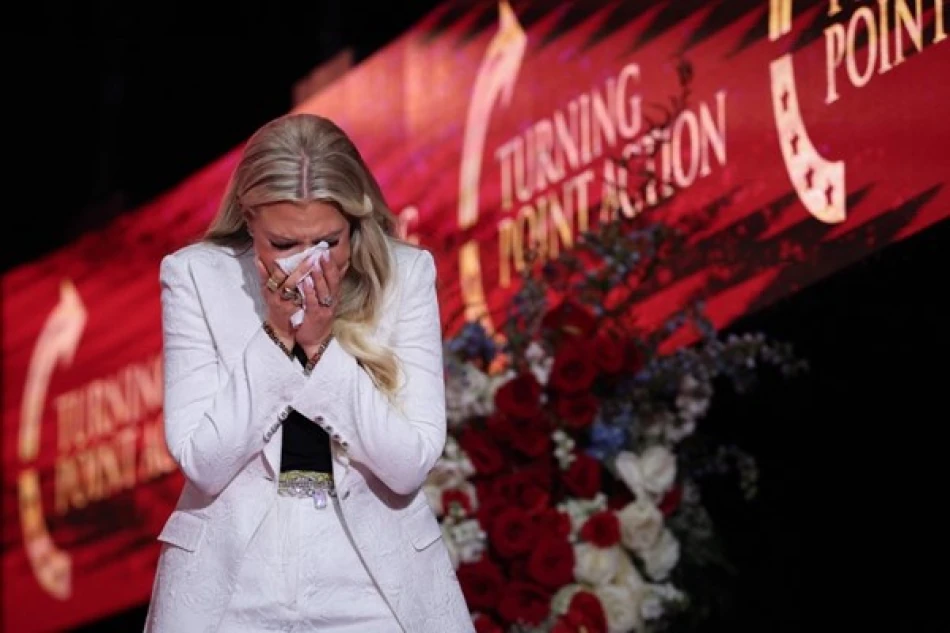
Widow of Charlie Kirk Forgives Husband's Killer: A Powerful Story of Forgiveness
Widow's Powerful Act of Forgiveness Stuns 60,000 at Memorial Service
In a moment that left thousands speechless, Erika Kirk publicly forgave her husband's alleged killer during a massive memorial service attended by over 60,000 people, including President Donald Trump. The 36-year-old widow's unexpected declaration of forgiveness came as she honored her late husband Charlie Kirk, a conservative influencer who was gunned down on a Utah college campus last month.
A Message That Transcended Politics
Standing before the packed Arizona football stadium, Erika Kirk delivered words that cut through the typical rhetoric of such events. "My husband Charlie wanted to save young men exactly like the young man who killed him," she said, her voice breaking with emotion. "That man, that young man. I forgive him."
The crowd fell silent as her words echoed through the stadium. Here was a woman who had lost everything, choosing grace over vengeance in front of a politically charged audience.
The Tragic End of a Rising Voice
Charlie Kirk, 31, was shot and killed on September 10 during what witnesses described as a targeted attack on the University of Utah campus. The shooting sent shockwaves through conservative circles, where Kirk had built a significant following as a political commentator and youth activist.
After a 33-hour manhunt that gripped the nation, authorities arrested Tyler Robinson, the suspected gunman. Robinson now faces potential death penalty charges if convicted.
When Personal Tragedy Meets Public Grief
The memorial service itself became a statement about how America processes loss in the social media age. With President Trump in attendance and thousands more watching online, what could have been a private moment of mourning became a national event.
But Erika Kirk's words shifted the focus away from politics and toward something more fundamental. Her decision to publicly forgive her husband's alleged killer reflects a growing conversation about restorative justice, even in cases involving violent crime.
The Ripple Effect of Forgiveness
Public acts of forgiveness aren't new in American tragedy. Families of Charleston church shooting victims famously forgave their loved ones' killer in 2015. The families of Amish schoolchildren killed in Pennsylvania did the same in 2006.
But each instance carries its own weight. When someone chooses forgiveness over retribution in such a public way, it forces everyone watching to examine their own capacity for grace.
Erika Kirk's words won't bring her husband back. They won't change the legal proceedings ahead for Tyler Robinson. But they might change how people think about justice, healing, and what it means to honor the dead.
In a country often divided by anger and blame, her message was simple and radical: even in the face of unimaginable loss, forgiveness remains possible.
Most Viewed News

 Layla Al Mansoori
Layla Al Mansoori






